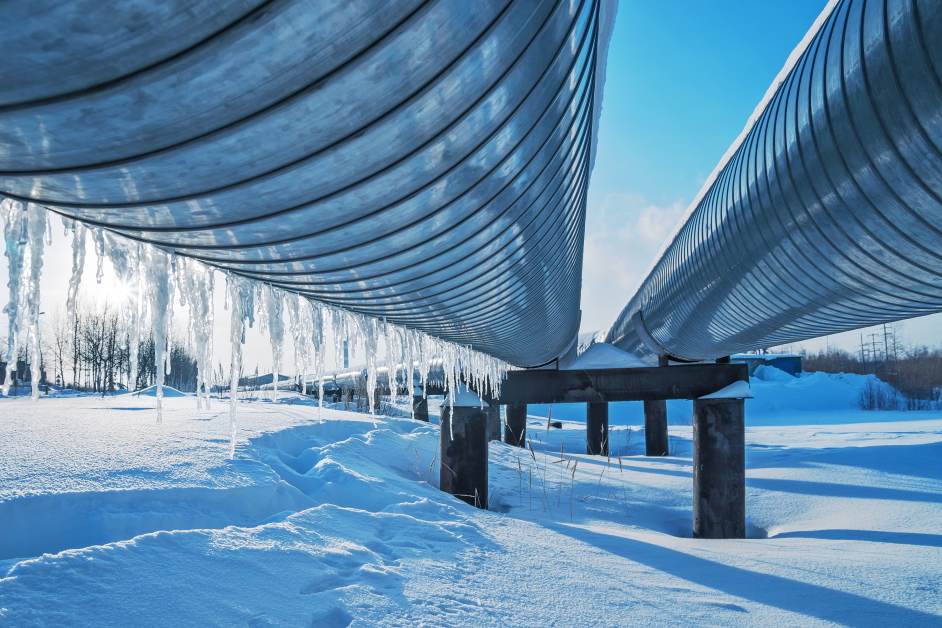· Brian Horton · Pipeline Deals · 5 min read
Alaska LNG Pipeline Project Attracts Global Interest from Japan and South Korea
The Alaska LNG pipeline project draws interest from Japan and South Korea, offering a strategic energy partnership with the U.S.

The Alaska LNG pipeline project, a monumental $44 billion natural gas infrastructure initiative, is drawing significant interest from international partners, including Japan and South Korea. This ambitious project, which aims to transport natural gas from Alaska’s North Slope to the southern part of the state, has the potential to reshape energy exports and the global energy market. With an estimated 800-mile pipeline route, the Alaska LNG project aims to produce liquefied natural gas (LNG) and ship it to markets across Asia, where demand for energy resources is steadily growing.
U.S. President Donald Trump recently highlighted that both Japan and South Korea have expressed interest in partnering with the United States to make the Alaska LNG pipeline a reality. This project has been in development for years, and the involvement of foreign partners is seen as essential to overcoming the logistical challenges and enormous financial costs associated with such a large-scale infrastructure project. Trump’s announcement suggests that both nations view this project not only as a means to secure reliable energy supplies but also as an opportunity to strengthen geopolitical ties with the United States and diversify their energy resources.
The involvement of South Korea in the Alaska LNG pipeline project has attracted particular attention. South Korea’s energy strategy revolves around securing a diverse and stable supply of natural gas. As one of the largest importers of LNG, South Korea is looking to invest in various energy infrastructure projects to ensure its long-term energy security. The possibility of partnering with the United States on the Alaska LNG pipeline fits within this broader strategic framework, which focuses on reducing dependency on traditional energy suppliers and mitigating the risk of energy price fluctuations.
South Korea’s interest in the Alaska LNG project is driven by its desire to avoid the disruptions caused by geopolitical tensions and price volatility, which have affected global energy markets. The potential partnership with the United States offers the opportunity to reduce reliance on other regions, such as the Middle East and Russia, for natural gas imports. In addition, South Korean officials have discussed the potential for tariff exemptions and broader collaboration with the U.S. in the Asia-Pacific region. This strategic cooperation could provide mutual benefits, such as stable access to energy supplies and strengthened economic ties.
However, despite South Korea’s initial interest, recent reports suggest that there is some uncertainty about the level of commitment the country is willing to make in the Alaska LNG project. While South Korea has acknowledged the importance of the pipeline, it has not fully committed to investing in the project at the scale suggested by President Trump. The hesitation stems from several factors, including the massive financial cost of the project and the risks associated with such a high-stakes venture. Some experts believe that South Korea may be seeking assurances in the form of favorable financial terms or other guarantees before making any firm investment commitments.
The situation with South Korea contrasts with Japan’s position. Japan has a long history of working with the United States on energy projects, and its involvement in the Alaska LNG pipeline could serve as an extension of this established partnership. Japan’s energy strategy has evolved over the years, with the country actively seeking to diversify its energy sources in the wake of the 2011 Fukushima disaster, which severely impacted the country’s nuclear power capacity. As a result, Japan has turned to natural gas as a critical component of its energy mix, making the Alaska LNG project particularly attractive. Japan’s willingness to invest in the pipeline could help offset some of the financial risks, making the project more viable for all parties involved.
Despite the positive statements from President Trump about foreign interest in the Alaska LNG pipeline, some skepticism remains regarding the feasibility and level of international backing for the project. While both Japan and South Korea recognize the potential benefits of the pipeline, the financial and logistical challenges it poses cannot be ignored. With an estimated $44 billion price tag, the project would require substantial investment, and the risks involved in such a large-scale infrastructure project could deter potential investors.
However, if the project does go forward, it could have far-reaching consequences for global energy markets. The Alaska LNG pipeline would not only increase U.S. energy exports but also help to reshape energy dynamics in Asia. With China’s growing energy demand and the need for diversification in the region, the pipeline could provide a reliable and stable source of natural gas to countries like Japan and South Korea, which are looking to reduce their reliance on less stable sources of energy.
In conclusion, the Alaska LNG pipeline project stands as one of the largest and most ambitious infrastructure projects in recent U.S. history. While the involvement of foreign partners like Japan and South Korea could provide vital support in terms of funding and market access, the project’s future is still uncertain. As the U.S. seeks to expand its energy export capabilities and strengthen ties with Asian allies, the Alaska LNG pipeline offers a glimpse into the future of global energy trade. If completed, the project could play a pivotal role in meeting the growing demand for natural gas in Asia while helping the U.S. solidify its position as a major energy exporter on the global stage. However, its success will depend on overcoming significant financial and political hurdles, including the level of investment from international partners like South Korea and Japan.
- Alaska LNG
- Alaska pipeline
- global energy markets
- Japan
- South Korea